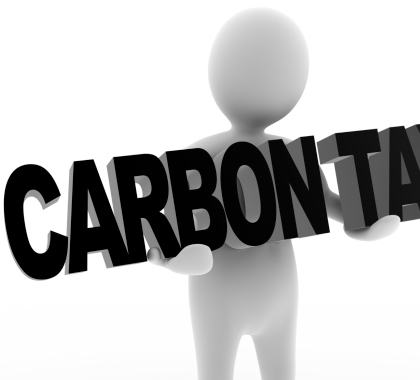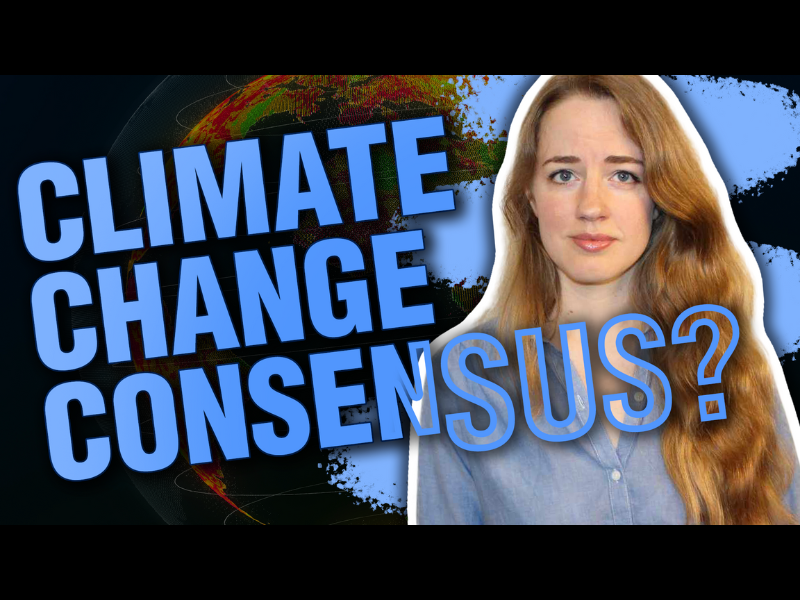A study examining six potential carbon dioxide taxes found the levies would depress U.S. Gross Domestic Product (GDP), hamper states’ efforts to improve and maintain critical infrastructure, and fail to satisfy U.S. emissions reduction targets under the Paris climate agreement.
The purpose of such a tax is to decrease carbon dioxide emissions by levying a per-ton tax on those emissions. President Donald Trump has said the United States will opt out of the Paris agreement when allowed in 2019.
The study, conducted by the econometrics firm Capital Alpha Partners for the Institute for Energy Research (IER), examined the economy-wide effects of proposed annual increases in carbon-dioxide taxes ranging from $36, $40, and $49 per ton to those topping out at $72, $108, and $144 per ton, from 2019 through 2040.
The study also calculated the impact of carbon dioxide taxes if, as has been proposed, other taxes are lowered to reduce the tax schemes’ regressive impact on low-income households, or other regulatory restrictions on carbon dioxide emissions are eliminated to reduce the negative impact on domestic businesses competing with overseas companies that do not face comparable carbon dioxide limits.
“We estimate the amount of carbon emissions reduced by each tax and the amount of net revenue generated for the federal government,” the study states. “We also compare federal revenues from the carbon tax to state and local government revenues from income, general sales, and excise taxes.”
Inefficient, Economically Costly
Depending on the carbon tax level chosen and how it would be adjusted over time, the U.S. economy would lose between $4.21 trillion and $5.98 trillion over the first 10 years of the tax and between $10.41 trillion and $12.32 trillion by 2040, the study found. This would amount to a 14.91 percent to 23.41 percent decline in GDP relative to what it would be without the carbon tax.
State and local government revenues would be disproportionately affected by a federal carbon tax, the study concludes.
“[The carbon dioxide tax] would push static costs and revenue losses equivalent to 11 percent of gross revenues through to the states and local government … [amounting] to between $18.9 and $30.7 billion per year,” the study states. “Dynamic losses to state income and general sales taxes would push these costs higher.”
“Currently, the bulk of all motor fuel revenue is raised by the states, and all of it eventually goes to the states for infrastructure spending,” the study reports. “A federal carbon tax in the scenarios we study would divert the bulk of motor fuel revenues to the federal government, effectively doubling taxes on motor fuels with no new revenue allotted to the states.”
As a result, states would have less money available to expand, replace, and repair critical transportation infrastructure such as roads, bridges, and rail systems, the study found.
If the federal government were to adopt any of the carbon tax scenarios examined in this study, it would “impede state efforts to finance new transportation infrastructure,” the authors write.
‘Revenue-Recycling Strategies’
Even though any carbon tax adopted by Congress would have to reduce other taxes or regulations to be politically feasible, it would still result in net harm to the economy and states’ fiscal well-being, says Jordan McGillis, an IER policy analyst who also serves as a policy advisor to The Heartland Institute, which publishes Environment & Climate News.
“The study’s key takeaway is politically realistic revenue-recycling strategies, by which I mean strategies that allocate at least some portion of the revenue to minimizing the regressive effects of a carbon tax, will be detrimental to the country’s economic performance,” McGillis said. “Of the revenue-recycling strategies evaluated in this study, only total allocation toward relieving corporate taxes even leaves open the possibility that a tax-swap will result in better-than-breakeven economic performance.
“What’s more, the study shows a carbon tax at the federal level would create new stress on the fiscal wellbeing of state governments by both driving up their costs and cutting into their sources of revenue,” said McGillis.
‘Head-in-the-Sand Stupidity’
Reasonable analysts should end and delegitimize the continued efforts to calculate the costs of carbon taxes, says Jay Lehr, science director at The Heartland Institute.
“It is absolutely amazing climate realists who recognize carbon dioxide has no measurable impact on the planet’s temperature can sit by and calmly allow, and indeed often fund, economists’ calculations of the economic impacts of a carbon dioxide tax,” said Lehr. “While it is good, and completely unsurprising, the studies consistently conclude carbon dioxide taxes always have negative consequences, we climate realists should cease churning out studies based on the head-in-the-sand stupidity there might be a feasible carbon dioxide tax, because the public is being misled into believing there is some positive purpose to the effort.
“Continuing to estimate the impacts of different carbon taxes is exactly like the old debate over how many angels could fit on the head of a pin: a futile, wasted effort, but in this case an expensive one, giving false hope to those pushing such a tax that one study will eventually find restricting or ending the use of fossil fuels will actually produce good results,” Lehr said.
Timothy Benson ([email protected]) is a policy analyst with The Heartland Institute.
INTERNET INFO
Capital Alpha Partners, “The Carbon Tax: Analysis of Six Potential Scenarios,” Institute for Energy Research, October 31, 2018: https://heartland.org/publications-resources/publications/the-carbon-tax-analysis-of-six-potential-scenarios





